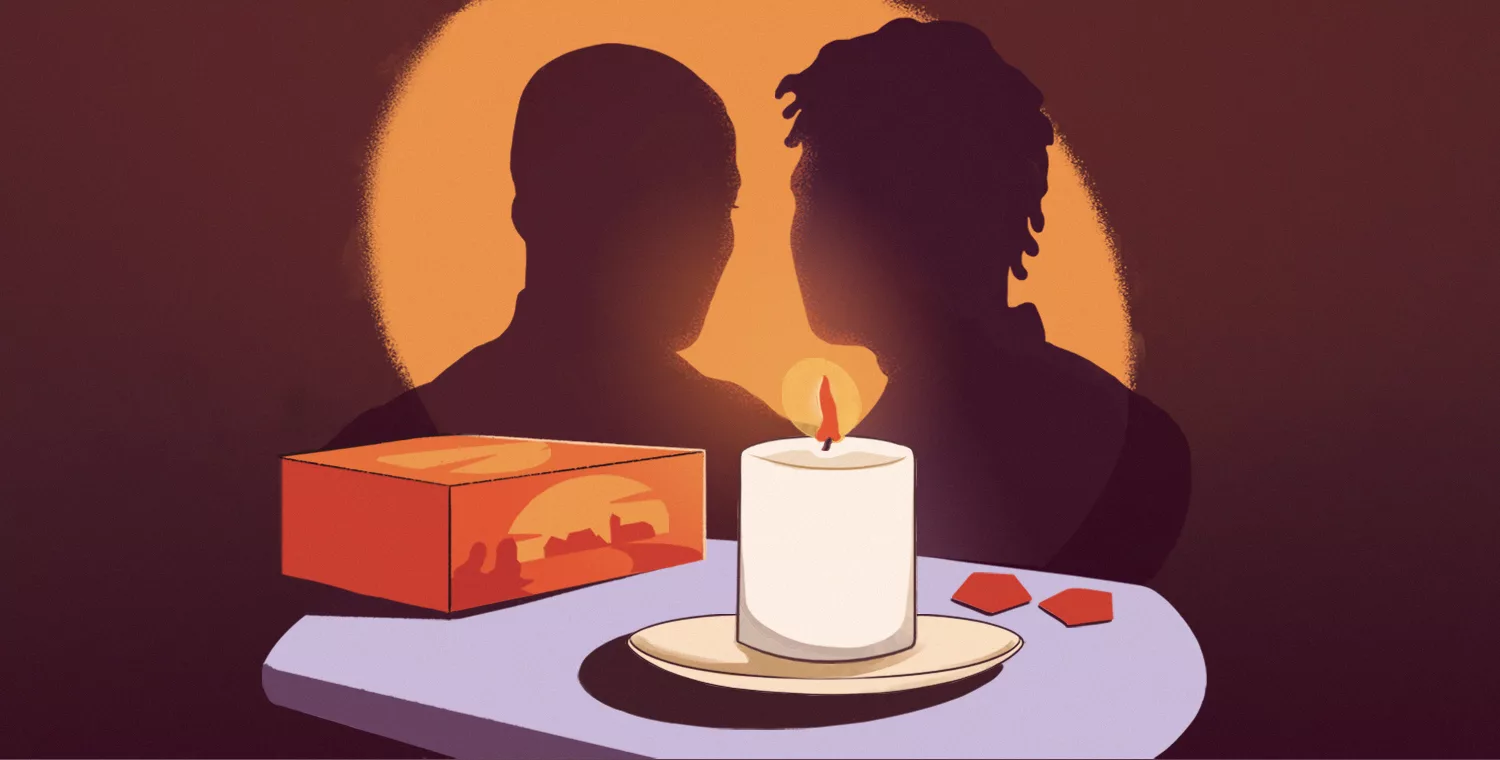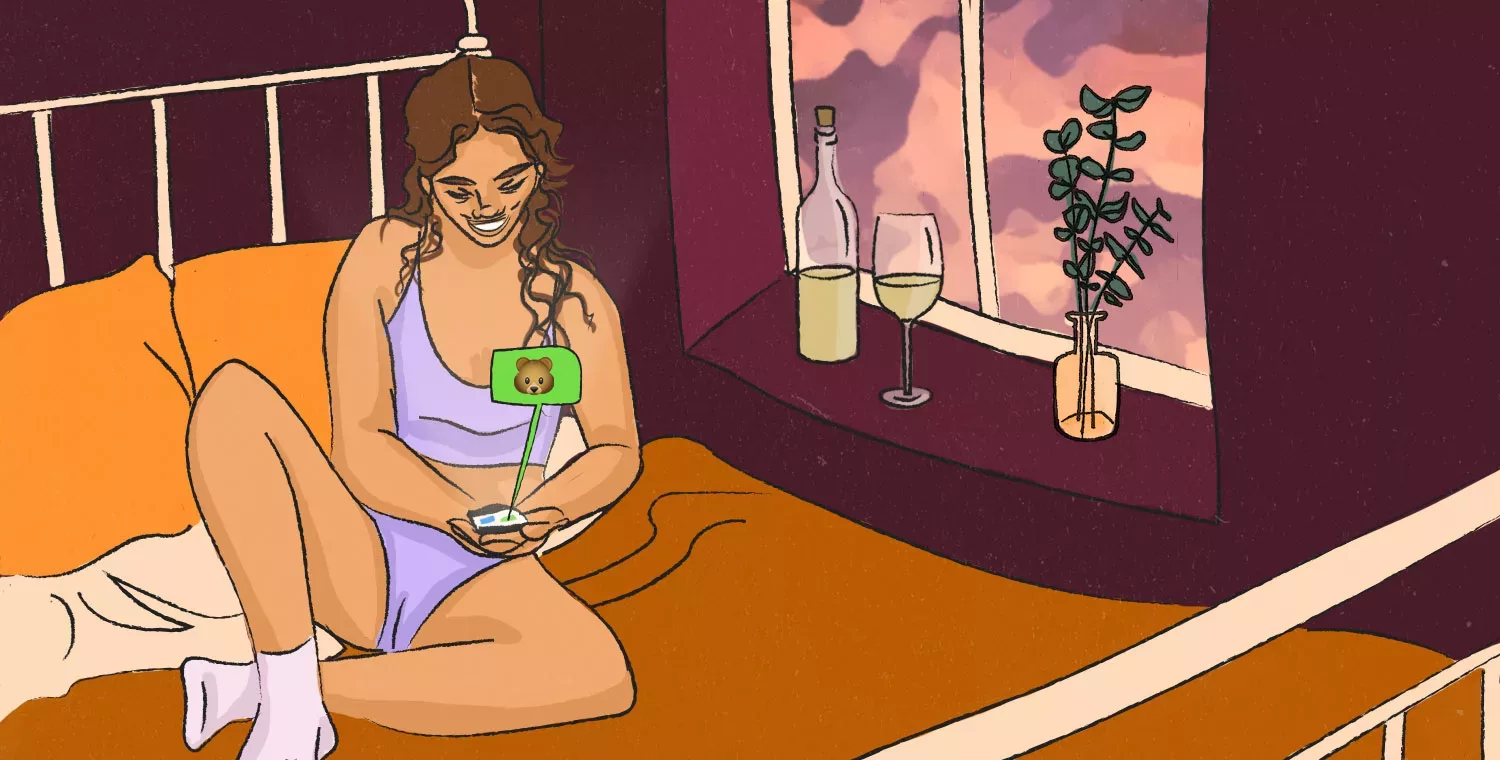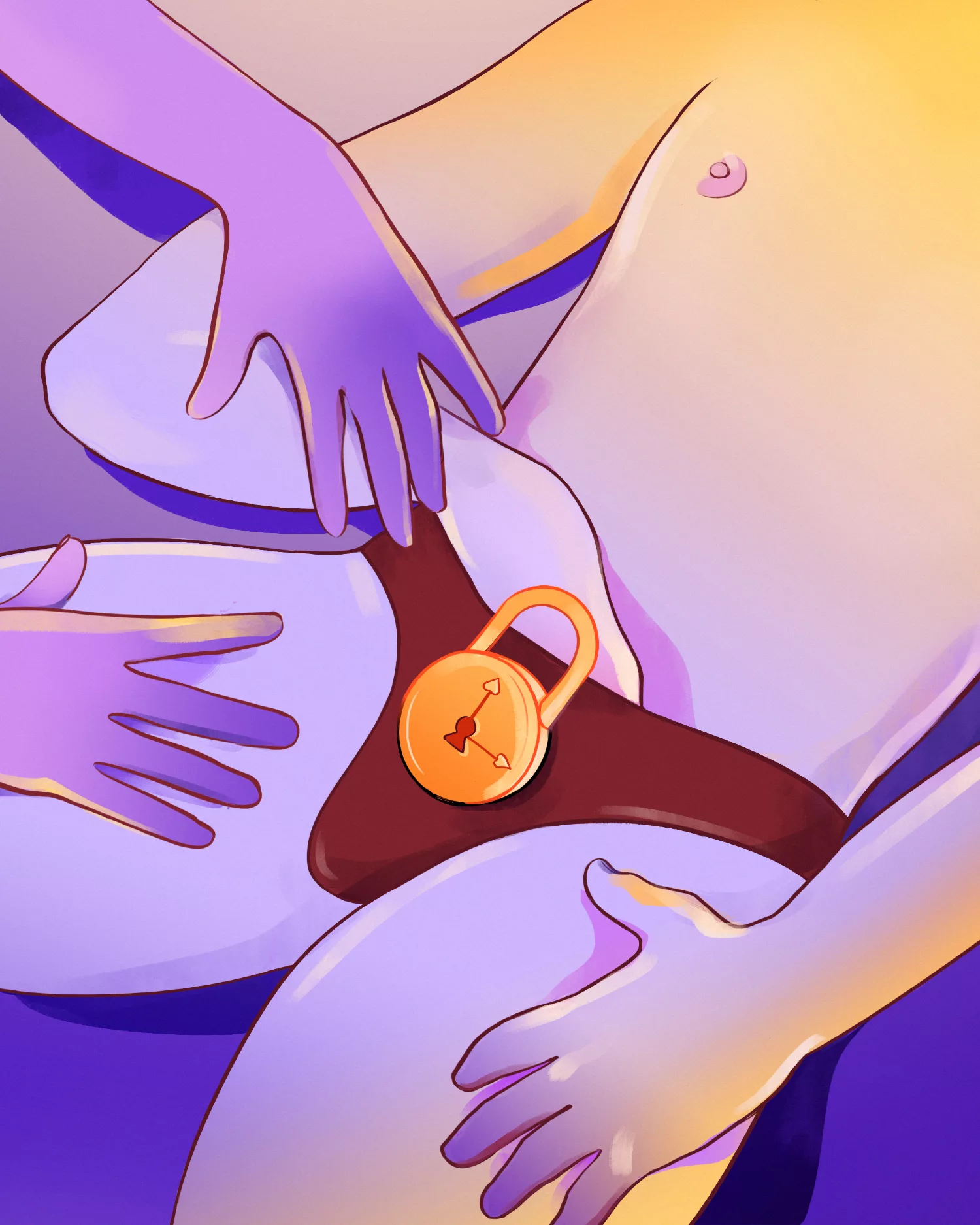Your cart is currently empty!
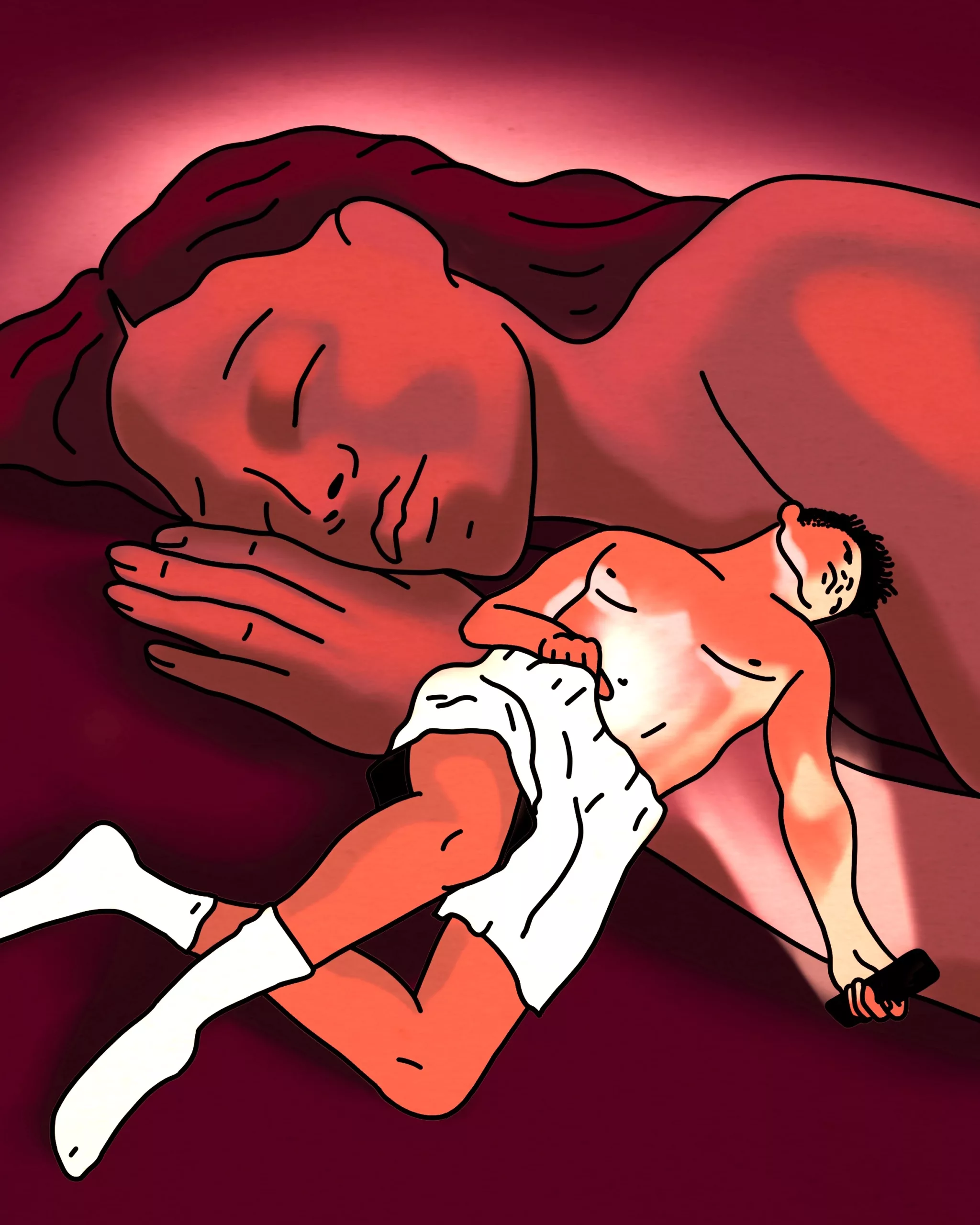
Desire Discrepancy: The Romantic Drift
Summary
Desire discrepancies are one of the most common relationship problems. What can we do when our levels of desire don’t match? How could Gabriel and Élise have communicated more effectively and, above all, more empathetically?
To have reached the million-minute mark is to have been in a relationship for two years. Two years of love and tenderness, going out to bars with friends, weekend camping trips, making out until late at night, and passionate lovemaking.
Passionate? This is where the problem lies. Gabriel isn’t so sure about this adjective anymore. Actually, it’s not the adjective that poses a problem, but rather the act itself, or rather… its frequency.
“Do you feel like it this evening?”
It’s been ten days since he last made love to his girlfriend. It is precisely this thought that preoccupies him when Élise joins him under the covers. The last three times he tried to initiate some funny business, she declined his advances. He is madly in love with her. No doubt about it.
“Not really. Is that okay?” replies Élise.
Gabriel pauses before responding. He looks around the room. The tent and sleeping bags from their last camping trip are still waiting to be put away. His gaze falls on the box of condoms next to the bed, covered in a fine layer of dust. The cock ring stored in the bedside table needs to be recharged. The lingerie bodysuit is probably at the bottom of the hamper in that section that never seems to make it to the washing machine.
He would like to have sex four or five times a week, whereas Élise is perfectly satisfied with making love once a week on average. . And sometimes, not even that.
He doesn’t know what to do anymore. He wants her, but his desire is unrequited.
“No worries,” he finally replies.
“Do you think we don’t do it often enough?”
“Well, no…” he says more automatically than out of transparency. “Shall I turn off the light?”
“Yeah.”
In the darkness, Gabriel caresses Élise’s back over her T-shirt. Her hair is silky to the touch. He slides his hand under the fabric. His fingers lightly touch her skin. Plus, she smells so good. Note to self: Buy more massage oil.
“That’s gentle,” she whispers. “I like it when you do that.”
Gabriel’s caresses lose their innocence, and his hands linger more and more on his lover’s behind. He buries his head in her neck, and leaves kisses along her throat and behind her ears.
When he presses himself against her and she feels his erection against her leg, she pulls away. Gabriel resumes his caresses and moves closer, but she turns around.
“Hey, what are you doing?”
“I don’t know… I thought I could…”
“Make me change my mind?”
“I really want you.”
“I told you I didn’t feel like it tonight.”
“Ok, but you never want to make love,” sighs Gabriel.
Élise turns her back to him.
“Are you sulking?” Gabriel asks.
“No.”
“Are we good?”
“No, we’re not good,” she retorts, turning on the bedside lamp. “Every time I don’t feel like it, you sigh and you make me feel like shit because I’m not in the mood.”
“That’s not true. I don’t sigh. I didn’t do anything to make you feel like crap. It’s just that it would be nice if we slept together more often.”
“Look, I don’t know what to tell you. I have five courses per session, and I work on weekends. I’m completely burned out.” .
“Well, I don’t know what to tell you either! I just find it unfortunate that you never want to do it. We already don’t spend much time together as it is.”
Élise and Gabriel are now sitting up, glaring at each other.
“Hey, it’s not true that I’m never in the mood. We did it at the cottage on your birthday, like…”
“Like two weeks ago! Gee, happy 23rd birthday to me.”
“Wow, that definitely makes me happy that I brought you to the cottage. Sorry if I’m not in the mood more often, but you’re certainly not going to turn me on tonight with that attitude.”
“Oh, so I have an attitude problem? You said you weren’t in the mood tonight! And even if we don’t talk about it, it won’t make a difference.”
With tears in her eyes, Élise reaches for the box of tissues. Her voice cracks.
“I’m not saying that we shouldn’t talk about it. I’m just saying that guilt tripping me into having sex is fucking draining.”
“Fuck, Élise, I’m not guilt tripping you into having sex!”
“Right. And I bet you’re not gaslighting me, either.” .
“Wow, you’re so annoying!”
Gabriel gets up, grabs a sleeping bag on his way out of the bedroom, and slams the door behind him. He slumps onto the sofa and covers himself. Small bit of comfort: the sleeping bag still smells like a bonfire. How do you quickly take your mind off things? Netflix? Ugh. PlayStation? That’s a plan for a sleepless night.
On his phone, Gabriel looks up their earlier conversations and finds snippets from the start of their relationship. The verve of their sexts from yesteryear contrasts bitterly with their current sex life, which he would describe as defective.
Yes, defective.
Can sex lives break? If so, can they be repaired? Where is the reset button? Should he accept the way things are now and accept “defeat”? It seems as though the honeymoon is over and that a desire crash is inevitable. .
Gabriel feels guilty. He is ashamed to admit it to himself, but he is questioning his relationship. The question that kills: Do we keep going? What’s a (mostly) sexless relationship?
The unknown, that’s what. Would it be better with another partner? Is it okay to ask yourself these questions? He’s not about to cheat on his girlfriend to satisfy his desires, but the new barista at the café next door to his workplace is pretty cute.
So many questions, and no one to turn to. Besides, who can he talk to about this?
When he tires of ruminating while reading old conversations that will never happen again, Gabriel closes his messages and types the name of his favorite porn site into the web browser. He slips his hand into his boxers and begins to touch himself in front of the small screen on which scenes, each more arousing than the last, flash up on demand.
After orgasming, he is flooded with feelings of shame and guilt. He feels dirty. He feels sorry for having been so insistent with the person he loves most in the world. He balls up his boxers and places them on the floor next to the couch.
Why doesn’t she want him like he wants her? It’s so frustrating. He just wants things to be like they used to. This isn’t the first time he has stormed out of the bedroom angry and dissatisfied to go touch himself alone while Élise… What is she doing, exactly?
Does she still love him? Would things be better with someone else? These questions pile up in Gabriel’s head. What would his friends think of him if they knew he didn’t have sex with his girlfriend every week? Aren’t you supposed to be doing it two or three times a week “like everyone else”?
***
Desire discrepancies are one of the most common relationship problems. What can we do when our levels of desire don’t match? How could Gabriel and Élise have communicated more effectively and, above all, more empathetically?
To be continued.
-
Blair, K. L. et Pukall, C. F. (2014). Can less be more? Comparing duration vs. frequency of sexual encounters in same-sex and mixed-sex relationships. The Canadian Journal of Human Sexuality, 23(2), 123–136. https://10.3138/cjhs.2393
Bowman, C. P. (2014). Women’s masturbation: Experiences of sexual empowerment in a
primarily sex-positive sample. Psychology of Women Quarterly, 38(3), 363–378. https://doi.org/10.1177/0361684313514855
Davies, S., Katz, J. et Jackson, J. L. (1999). Sexual desire discrepancies: Effects on sexual and relationship satisfaction in heterosexual dating couples. Archives of Sexual Behavior, 28(6), 553–567. https://doi.org/10.1023/A:1018721417683
Harris, E. A., Gormezano, A. M. et van Anders, S. M. (2022). Gender inequities in household labor predict lower sexual desire in women partnered with men. Archives of Sexual Behavior, 51(8), 3847–3870. https://doi.org/10.1007/s10508-022-02397-2
Herbenick, D., Bowling, J., Fu, T. C., Dodge, B., Guerra-Reyes, L. et Sanders, S. (2017). Sexual diversity in the United States: Results from a nationally representative probability sample of adult women and men. PloS One, 12(7), e0181198. https://doi.org/10.1371/journal.pone.0181198
Hightower, E. (2017). An exploratory study of personality factors related to psychological abuse and gaslighting (Numéro de publication 10642512) [Thèse doctorale, William James College]. Proquest. https://www.proquest.com/docview/2029172790?pq-origsite=gscholar&fromopenview=true
Johnson, M. D., Galambos, N. L. et Anderson, J. R. (2016). Skip the dishes? Not so fast! Sex and housework revisited. Journal of Family Psychology, 30(2), 203–213. https://doi.org/10.1037/fam0000161
Klusmann, D. (2002). Sexual motivation and the duration of partnership. Archives of Sexual Behavior, 31(3), 275–287. https://doi.org/10.1023/A:1015205020769
Konishi, S., Moriki, Y., Kariya, F. et Akagawa, M. (2022). Casual sex and sexlessness in Japan: A cross-sectional study. Sexes, 3(2), 254–266. https://doi.org/10.3390/sexes3020020
Mark, K. P. (2012). The relative impact of individual sexual desire and couple desire discrepancy on satisfaction in heterosexual couples. Sexual and Relationship Therapy, 27(2), 133–146. https://doi.org/10.1080/14681994.2012.678825
Mark, K. P. et Murray, S. H. (2012). Gender differences in desire discrepancy as a predictor of sexual and relationship satisfaction in a college sample of heterosexual romantic relationships. Journal of Sex & Marital Therapy, 38(2), 198–215. https://doi.org/10.1080/0092623X.2011.606877
Mark, K. P. (2015). Sexual desire discrepancy. Current Sexual Health Reports, 7(3), 198–202. https://doi.org/10.1007/s11930-015-0057-7
Meston, C. M. et Buss, D. M. (2007). Why humans have sex. Archives of Sexual Behavior, 36(4), 477–507. https://doi.org/10.1007/s10508-007-9175-2
Mitchell, K. R., Mercer, C. H., Ploubidis, G. B., Jones, K. G., Datta, J., Field, N., … et Wellings, K. (2013). Sexual function in Britain: findings from the third National Survey of Sexual Attitudes and Lifestyles (Natsal-3). The Lancet, 382(9907), 1817–1829. https://doi.org/10.1016/S0140-6736(13)62366-1
Montemurro, B. (2014). Deserving desire: Women’s stories of sexual evolution. Rutgers University Press.
Muise, A., Schimmack, U. et Impett, E. A. (2016). Sexual frequency predicts greater well-being, but more is not always better. Social Psychological and Personality Science, 7(4), 295–302. https://doi.org/10.1177/1948550615616462
Murray, S. H., et Milhausen, R. R. (2012). Sexual desire and relationship duration in young men and women. Journal of Sex and Marital Therapy, 38(28), 28–40. https://doi.org/10.1080/0092623X.2011.569637
Murray, S. H., Milhausen, R. R., Graham, C. A. et Kuczynski, L. (2017). A qualitative exploration of factors that affect sexual desire among men aged 30 to 65 in long-term relationships. The Journal of Sex Research, 54(3), 319–330. https://doi.org/10.1080/00224499.2016.1168352
Nagoski, E. (2015). Come as you are: The surprising new science that will transform your sex life. Simon & Schuster Paperbacks.
Pacher, A. (2022). (No) sex in Japan: A sociology of sexlessness in intimate relationships. Springer Nature.
Rosen, N. O., Mooney, K. et Muise, A. (2017). Dyadic empathy predicts sexual and relationship well-being in couples transitioning to parenthood. Journal of Sex & Marital Therapy, 43(6), 543–559. https://doi.org/10.1080/0092623X.2016.1208698
Rowland, D. L., Kolba, T. N., McNabney, S. M., Uribe, D. et Hevesi, K. (2020). Why and how women masturbate, and the relationship to orgasmic response. Journal of Sex & Marital Therapy, 46(4), 361–376. https://doi.org/10.1080/0092623X.2020.1717700
Twenge, J. M., Sherman, R. A. et Wells, B. E. (2017a). Declines in sexual frequency among American adults, 1989–2014. Archives of Sexual Behavior, 46(8), 2389–2401. https://doi.org/10.1007/s10508-017-0953-1
Twenge, J. M., Sherman, R. A. et Wells, B. E. (2017b). Sexual inactivity during young adulthood is more common among US Millennials and iGen: Age, period, and cohort effects on having no sexual partners after age 18. Archives of Sexual Behavior, 46(2), 433–440. https://doi.org/10.1007/s10508-016-0798-z
Ueda, P., Mercer, C. H., Ghaznavi, C. et Herbenick, D. (2020). Trends in frequency of sexual activity and number of sexual partners among adults aged 18 to 44 years in the US, 2000-2018. JAMA network open, 3(6), e203833–e203833. https://doi:10.1001/jamanetworkopen.2020.3833
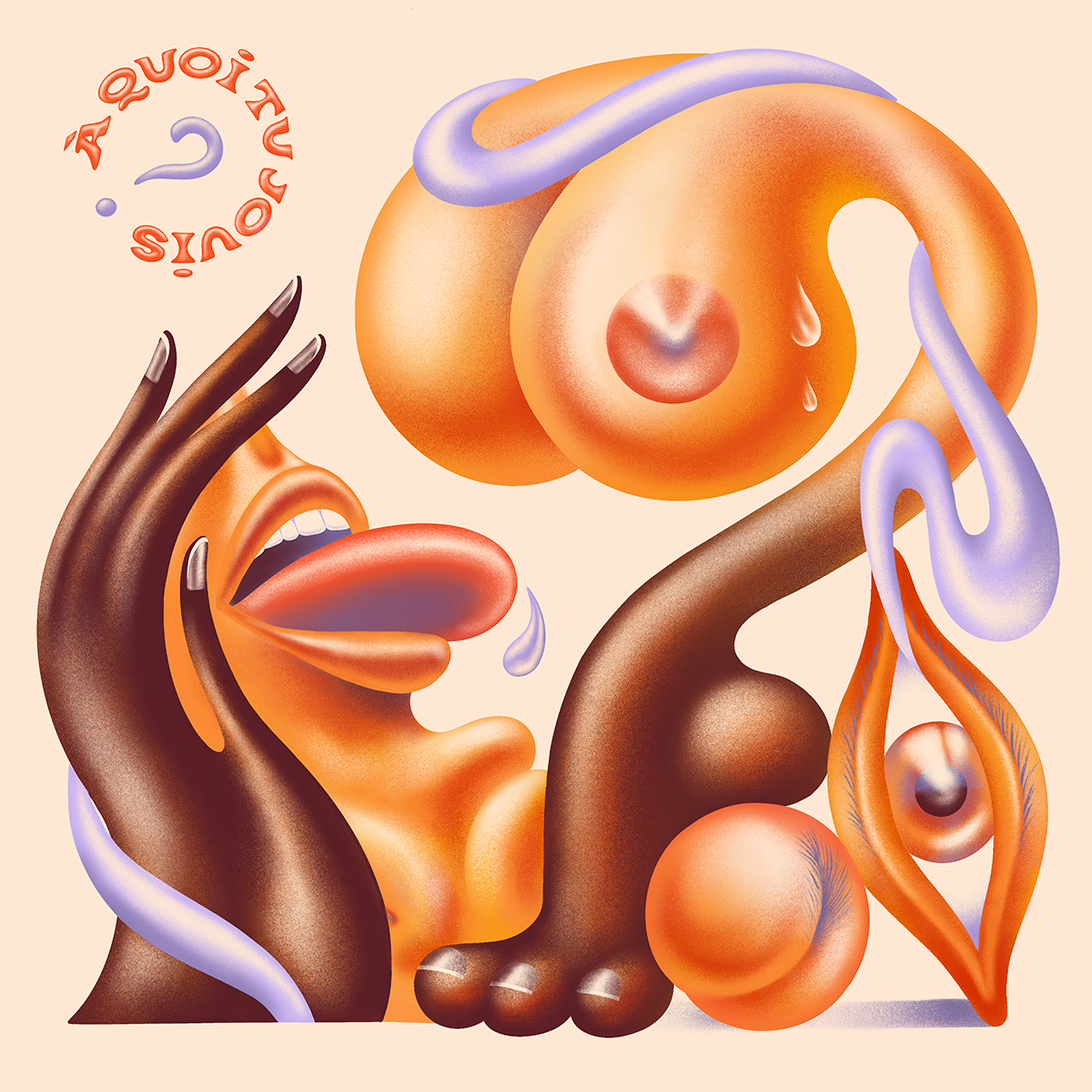
If reading this article has piqued your curiosity, there’s an episode of our podcast, À quoi tu jouis?, about sexuality and routine (available in French only).



